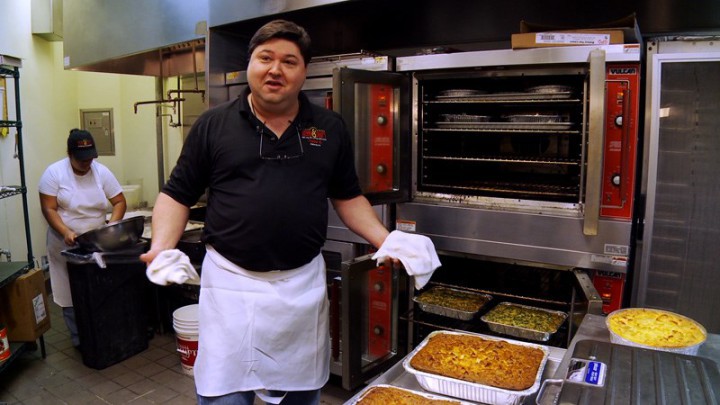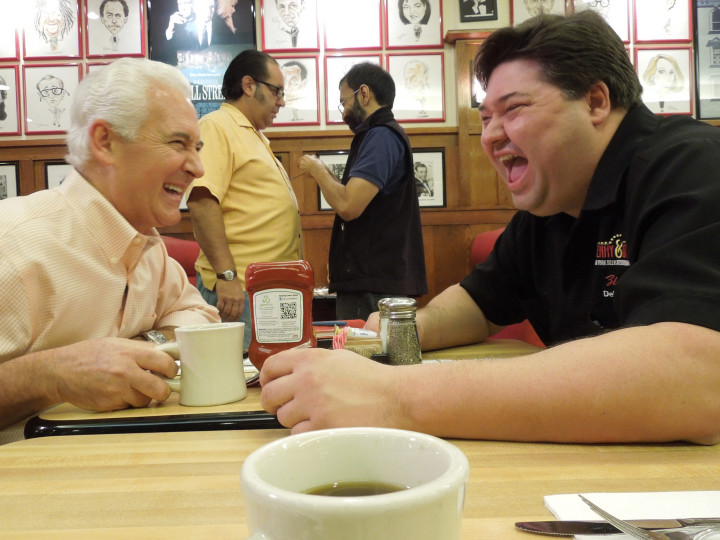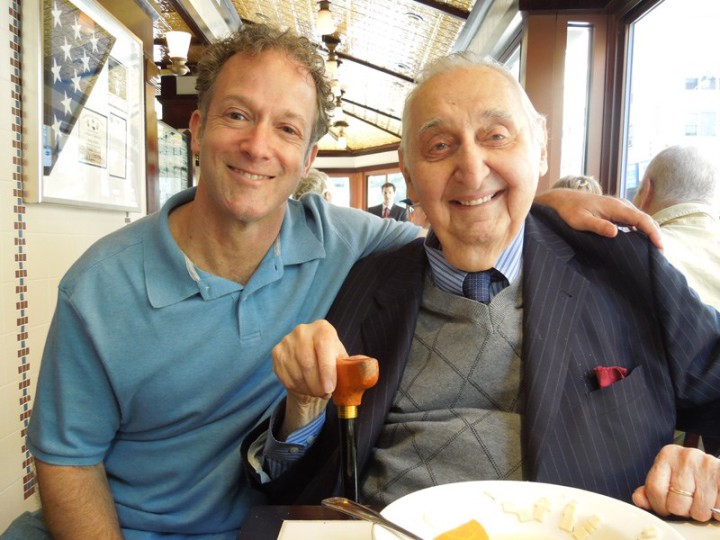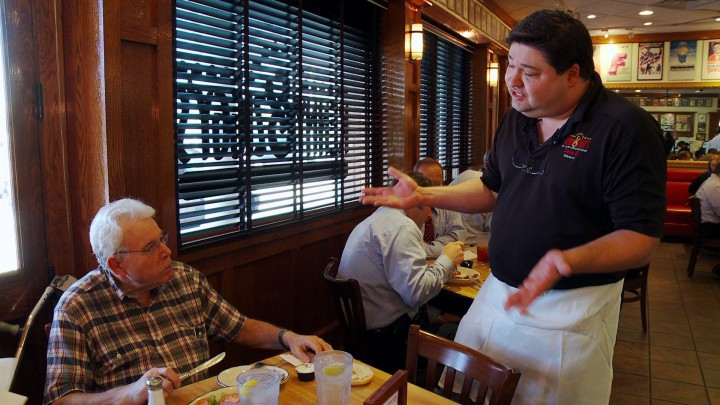Deli Man is that rarest of things — the informational (as opposed to activist) documentary that manages not to overstay its welcome by assuming that the viewer is just as interested in its topic as the filmmaker is. Of course, it helps that the topic of food is one to which everyone can relate, but the film’s cleverer than leaving things at that and doesn’t just rely on the fact that close-ups of impossibly thick pastrami sandwiches are pretty hard to resist. No, the film is just as stuffed as those sandwiches. It’s not just a celebration is deli food. It’s also a compact history of delicattesens. It’s a look into the whole deli experience — both behind and in front of the counter. It’s an examination of what might be called deli culture. And, perhaps best of all, it’s a character portrait of of deli owner David “Ziggy” Gruber — almost a biopic, that charts not only his work, but his personal life. It’s that last element that gives the film its shape and dramatic structure — even though it’s sometimes hard to tell where work leaves off and personal life begins.
In a sense “Ziggy” is the movie’s not-so-secret weapon. He owns and runs Kenny and Ziggy’s New York Delicatessen in Houston, but he’s kind of deli royalty as the grandson of the owner of the Rialto Deli in New York. He’s also been absorbed in the deli life since he was eight years old and now works determinedly to keep the rapidly vanishing deli culture going. In some ways, the gregarious Ziggy seems more like a force of nature than anything else. That, of course, is exactly how the film keeps going at such an enjoyable clip.
The movie puts forth the idea that there are now only about 150 delis in the U.S. — something that prompted me to check out the fate of the deli from childhood, Ronnie’s in Orlando, Florida. Sure enough, it’s long gone (like just about everything else I liked about Orlando), but what of Wolfie’s over in St. Pete? Well, that seems to be history, too. From a purely personal standpoint, I’m inclined to agree that the deli is something of a dying breed. (No, that meat and cheese counter in your grocery store is not a deli, no matter what sign they hang over it.) When you look at the thriving business in the film’s hold-outs, it’s hard to understand. But when you look at the age of the people talking about delis, it’s easier to grasp.
It’s worth noting that Ziggy is identified as being closer to his grandfather than to his parents or siblings, meaning than his values are perhaps a generation behind. This is driven home when Ziggy and his father tour the “old neighborhood” and Ziggy bemoans all the changes, while his father shrugs it off as something that just inevitably happens. Ziggy is grounded firmly in the past — even the past he never personally knew in the “old country” (Hungary) — and resists things like broadening or experimenting with the menu. Maybe that’s his secret — and the secret of his appeal in the film — he not only runs his deli, he plays the role of, yes, the Deli Man.
The Asheville Jewish Film Festival and the Fine Arts Theatre present Deli Man for two showings — Thursday, May 7, at 6 p.m. (film and reception – $22) and Friday, May 8, at 1 p.m. (film only – $8.50) at Fine Arts Theatre.








Before you comment
The comments section is here to provide a platform for civil dialogue on the issues we face together as a local community. Xpress is committed to offering this platform for all voices, but when the tone of the discussion gets nasty or strays off topic, we believe many people choose not to participate. Xpress editors are determined to moderate comments to ensure a constructive interchange is maintained. All comments judged not to be in keeping with the spirit of civil discourse will be removed and repeat violators will be banned. See here for our terms of service. Thank you for being part of this effort to promote respectful discussion.